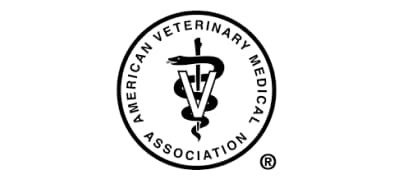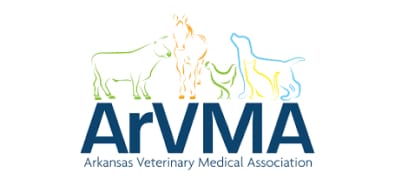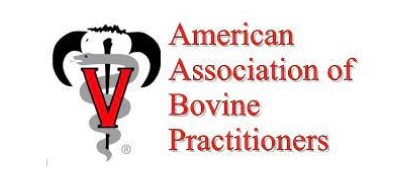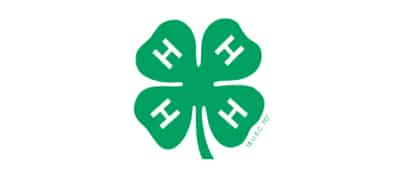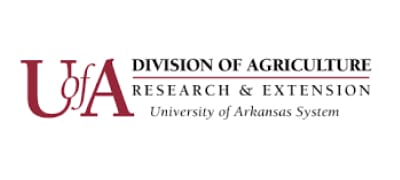General FAQ
Frequently Asked Questions
Covering common questions about appointments, services, emergency care,
and more to provide clear, helpful information for pet owners.

Do you offer boarding?
Yes, we do offer boarding in our facility with respect to the number of hospitalized patients. To request boarding space, please contact the receptionist.
Do you offer pet grooming services?
No, we do not offer pet grooming services.
Does my pet need an exam for flea/tick medicine?
Yes, since our flea/tick protection products are prescription medications, we require a Veterinary/Client/Patient Relationship and a current exam.
Can I drop off a sick pet to be worked in?
We do allow drop-off appointments, but we do require you to call and schedule the pet as a drop-off.
Can I visit my sick pet in the hospital?
We do allow visitation on an individual basis determined by what is best for the patient. Please call and ask to schedule a visitation. The veterinary team will decide if it is what is best for your pet.
Are you an emergency hospital?
No, we are not an emergency facility. We do provide emergency services both during business hours after hours for our current patients.
How much do various procedures cost?
Please call 870-845-1122 to inquire about procedure costs.
What are your business hours?
Monday, Tuesday, Thursday, Friday 7:00 am – 6:00 pm (closed for lunch 11:00-12:00)
Wednesday 7:30 am – 5:30 pm (closed for lunch 11:00-12:00)
What type of payment do you accept?
We accept cash, check, credit/debit card, and CareCredit.
Must I pay at the time of service?
Yes, we require payment at the time of service for all companion animals (dogs, cats, horses).
Can I get a copy of my pet’s vaccination record?
Yes, please contact the receptionist at 870-845-1122 and request a vaccination certificate.
Can my pet eat the day of surgery?
No. Please fast your pet after midnight the night before surgery.
Does a veterinarian need to come to my farm for a Veterinary Feed Directive(VFD)?
Yes, a veterinarian must have a VCPR with your animals in order to write a VFD.
Who do I contact about cattle medicines?
We have a prompt on our phone system to direct your call first to our Livestock Consulting, and we will follow up with a veterinarian as needed.
Do you take in stray animals and find homes for them?
No. We do not have the capacity to take in stray animals. The animal shelter and pet rescues in the area can assist with this service.
Can I get information on a pet that does not belong to me?
No. Patient/Client confidentiality is of the utmost importance. We cannot share information with someone who is not listed as an owner on the account.
Do you work on exotic animals?
We offer minimal services on an individual basis for exotic animals. If it is something we do not offer, we can recommend an exotic veterinary clinic.
Do you offer coggins testing?
Yes, we do offer coggins testing.
Why didn’t anyone answer the phone when I called it after business hours?
We are not an emergency hospital. If you will please leave a message at the prompt with your name and phone number with a brief message, the veterinarian on call will return your call as soon as possible. We offer this service for our current patients/clients.
Can I pick up medicine for my pets/livestock?
If we have a current Veterinary/Client/Patient Relationship, we can dispense prescription medications at the veterinarian’s discretion. These medications include: flea/tick products, LA200, penicillin, LongRange, and others. If you do not have a current VCPR, we will gladly assist you in establishing a VCPR.
Do you offer interstate health certificates?
Our comprehensive equine care includes coggins testing, teeth floating, treatment of injuries and diseases, and AI services with progesterone monitoring to maintain the health and performance of your horses.
What care do you provide for small ruminants?
We offer disease treatment and prevention, as well as pregnancy testing to help manage and expand your herd effectively.
How can your services benefit my swine operation?
Our specialized surgical procedures, including C-sections and surgical castration, help ensure the health and productivity of your swine, preventing complications and improving overall herd management.
What kind of vaccines and products do you offer?
We offer a wide variety of vaccines and products to support the health and management of your livestock. These include vaccines for disease prevention, nutritional supplements, and health management products tailored to your herd’s needs.
How can livestock consulting benefit my operation?
Livestock consulting can help improve the health, productivity, and welfare of your herd. By addressing specific challenges and optimizing management practices, consulting services can enhance the overall success of your operation.
What is livestock consulting?
Livestock consulting involves providing expert advice and services related to the health, management, and productivity of livestock herds. This includes nutrition, breeding, disease prevention, and overall herd health management.
How quickly can I expect results from the in-house lab tests?
Most in-house lab tests provide results within a few hours, allowing us to make swift and accurate treatment decisions.
Are there specific tests that my pet can only get at NAH?
Yes, we offer specialized in-house tests like thyroid and progesterone testing, which are crucial for diagnosing hormonal imbalances and other specific conditions.
How does dental technology improve my pet’s health?
Regular teeth cleaning and horse teeth floating prevent dental diseases, ensuring your pet’s mouth stays healthy and free from pain.
What is the purpose of the small animal oxygen chamber?
The oxygen chamber provides critical respiratory support to pets in need, particularly those undergoing surgery or recovering from serious conditions.
Why are digital x-rays and ultrasounds important for my pet’s health?
These advanced imaging tools help us detect a variety of health issues early, from broken bones to internal organ problems, allowing for timely intervention.
How does in-house lab testing benefit my pet?
In-house lab testing allows us to quickly and accurately diagnose health issues, enabling prompt treatment and reducing the stress of long wait times.
Can I use this service if my pet has not been seen in over a year?
Unfortunately, our after-hours services are reserved for pets that have been seen within the past year. This policy ensures that we have up-to-date medical records and can provide the best possible care.
What types of emergencies do you handle?
We handle a wide range of emergencies, from sudden illnesses and injuries to critical conditions that require immediate attentionIf you’re uncertain whether your situation constitutes an emergency, err on the side of caution and reach out to us.
How quickly can I expect a response?
While we aim to respond as promptly as possible, response times may vary depending on the nature of the emergency and our current caseload. Rest assured, we prioritize urgent cases and endeavor to provide timely assistance.
What should I do in an emergency?
If you experience a pet emergency after regular office hours, please contact our after-hours line immediately. Our on-call veterinarian will guide you through the next steps to ensure your pet receives the care they need.
What are the costs associated with after-hours care?
There is an after-hours fee for emergency services. We strive to provide prompt assistance and maintain transparency about our fees, so you know what to expect.
Do I qualify for after-hours care?
To be eligible for our after-hours services, your pet must be a current patient. This means that they must have been seen by us within the past year.
What steps should I take for my pet’s post-surgery care?
We’ll provide detailed after-care instructions tailored to your pet’s specific needs. This includes information on medication, activity restrictions, and follow-up appointments to ensure a smooth recovery.
How do you manage pain for my pet during and after surgery?
Pain management is a top priority. We use a combination of medications and techniques to ensure your pet is comfortable before, during, and after surgery.
What types of surgeries do you perform on large animals?
We offer a variety of surgical services for large animals, including bovine c-sections, fetotomy, equine castrations, and surgical wound repair.
How do you ensure my pet’s safety during surgery?
Our surgical suite is equipped with advanced technology to monitor your pet’s vital signs, including pulse oximetry and warming systems. Our skilled staff closely monitors each patient throughout the procedure and recovery.
What should I expect before my pet’s surgery?
Before surgery, our team will conduct a thorough examination and discuss the procedure with you. We’ll provide pre-surgery instructions, which may include fasting and medication guidelines.
Is your boarding facility secure?
Yes, our boarding facility is designed to be secure, providing a comfortable and safe environment for all pets.
How often are pets walked and given playtime?
We walk our boarders and any ambulatory patients three times a day. Playtime is also included to ensure they stay active and mentally stimulated.
Can I get updates on my pet’s well-being during their stay?
Absolutely! We provide regular updates and communication regarding your pet’s well-being and activities to keep you informed and reassured.
What is your vaccination policy for boarding?
All pets must be current on their vaccinations, including bordetella, to be eligible for boarding. This helps ensure the safety and health of all animals in our care.
How do you handle pets with special medical needs?
We offer tailored care plans for pets with special needs or medical conditions. Our veterinary team will provide personalized attention to ensure all their requirements are met.
What do I need to bring for my pet’s stay?
We recommend bringing your pet’s regular diet to avoid any digestive issues. You can also bring a favorite toy or blanket to make them feel more at home.
What types of services do you offer for cattle?
We offer pregnancy testing, BSE, trich testing, vaccination programs, hoof work, and health condition diagnosis and treatment for cattle.
How can I protect my pet from parasites?
We recommend using vet-approved preventative treatments on a regular schedule, maintaining cleanliness in your pet’s environment, and conducting regular checks for any signs of parasites.
For more information or to schedule an appointment, please contact us at Nashville Animal Hospital. Your pet’s health and happiness are our top priorities, and we are here to support you in every way possible.
What types of parasites should I be aware of?
Common parasites include fleas, ticks, heartworms, and intestinal worms. Each can cause serious health issues for your pet if not prevented or treated promptly.
How can I maintain my pet’s dental health at home?
Regular brushing of your pet’s teeth, providing dental chews, and offering a balanced diet can help maintain good dental hygiene. We also recommend regular professional dental cleanings.
Why is dental care important for my pet?
Dental health is directly linked to overall health. Poor dental hygiene can lead to a variety of issues including gum disease, tooth loss, and can affect vital organs such as the heart and kidneys.
How often should my pet have a wellness exam?
We recommend annual wellness exams for all pets. However, senior pets, or those with ongoing health issues, may benefit from more frequent check-ups to monitor their health closely.
What Can I Expect During My Pet’s Wellness Exam?
During a wellness exam, our veterinarians will conduct a thorough physical assessment, check vital signs, perform necessary vaccinations, and discuss any health concerns you may have. This helps in detecting any potential health issues early.
